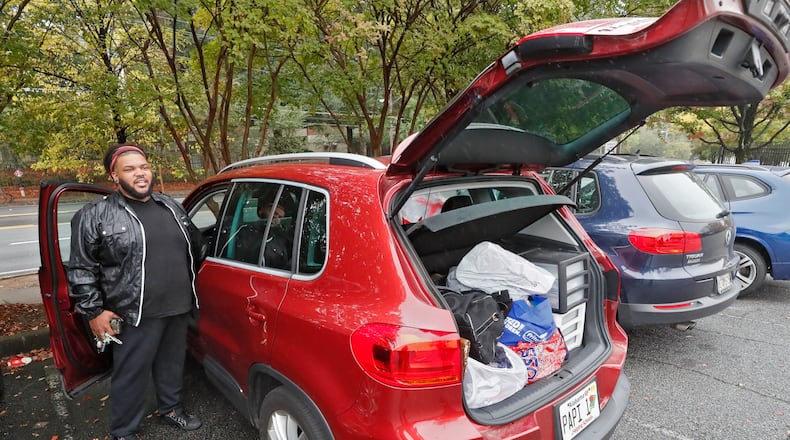“Open your eyes and help us,” a young voice pleads at the beginning of a documentary on homeless youths in Atlanta.
Dominic Stokes, founder of the Community Teen Coalition, directed the film in 2010 but the complex issues it explores remain persistent.
“When you talk about youth in that age bracket, they don’t want people to know they’re homeless,” Stokes said in a recent interview. “Or they don’t even know they’re homeless. I call it an epidemic.”
Two recent studies aimed at quantifying the problem arrived at differing conclusions. Data from the city of Atlanta found 3,217 homeless individuals, including 187 between the ages of 18 and 24 during its annual count. A Georgia State University study found more than 3,300 homeless people 25 and younger. That study included area counties, not just the city of Atlanta.
RELATED: Ongoing crisis in Atlanta program keeps those with AIDS/HIV homeless
ALSO: Homeless population drops, but families often overlooked
“Young people are particularly under-counted because they really don’t want to be found,” GSU sociology professor Eric Wright said. “The scope of the problem is much bigger when you’re talking about young people.”
Homeless and vulnerable
In 2015, Wright led a three-month study of homeless young adults in metro Atlanta, focusing on Fulton, Cobb, Clayton, DeKalb and Gwinnett counties. The research found more than 3,300 homeless people 25 and younger.
Wright and his research team repeated the study last year with a grant from the National Institute of Justice and arrived at nearly identical numbers, even as the city says it’s logging a decline in the homeless population.
A spokesman for Atlanta Mayor Keisha Lance Bottoms, Michael Smith, said the disparity is due to different methodologies. The GSU study included area counties and factored in people living in temporary hotel or “couch-surfing” situations.
“Not literal homelessness,” Smith said.
The GSU study also found that trafficking rates are particularly high among the homeless population. More than half of the study participants said they had been victims of either sex or labor trafficking in their lifetime, and about 36 percent had experienced trafficking while they were homeless. Some of those being trafficked didn’t identify themselves as victims, Wright said.
Lt. Jeff Baxter, commander of Atlanta’s special victims unit, said victims can be leery of authorities who want to help.
“We have to come across as not being the bad guys,” Baxter said at a recent discussion hosted by the Atlanta Rotary Club.
Trafficking doesn’t always involve sex, the GSU study found. Some young adults were forced into other types of work.
“Our experience is the nature of the exploitation was much more complicated,” Wright said.
Stokes, the Community Teen Coalition founder, said homeless youths are sometimes lured into gangs or criminal activity.
“These young people get into survivor mode and then they end up on the streets,” he said.
What’s the answer?
There is no simple fix to ending homelessness, particularly with young people, advocates say.
“These kids feel like they’re not a part of everyday life, that people don’t care,” Stokes said.
He and his wife run “Upward Bound” programs that help prepare low-income students for college and jobs after high school. The goal is teach young adults the skill sets they will need to thrive. But identifying those in danger of becoming homeless is key, Wright said.
“Early intervention among youth can ultimately be very strategic,” he said. “As they get closer to six months to a year of homelessness, percentages go up for trafficking.”
About the Author
The Latest
Featured


